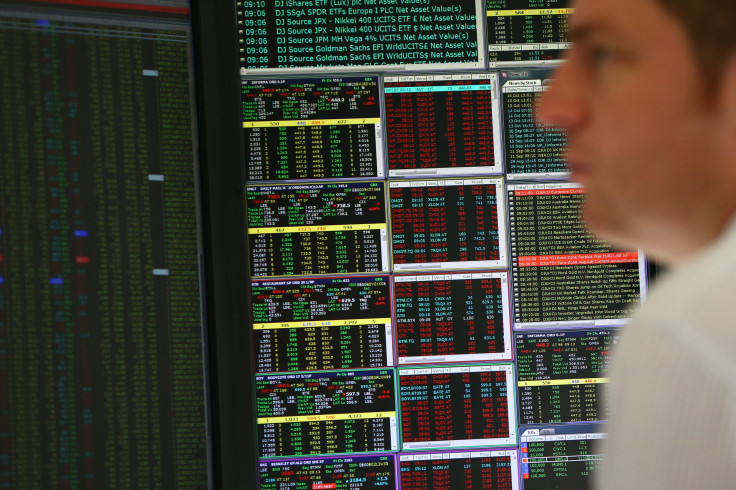Virtu IPO Puts High-Frequency Trading Back In Public Spotlight

Most Wall Street traders would be happy to go a week without a losing day. For Virtu Financial, the high-frequency trading firm that has its initial public offering Thursday, unprofitable days come once in a blue moon.
In fact, the firm boasts of ending just one day in the red in five and a half years – and that was the result of “human error.”
The broad strokes of how the Chicago company comes out ahead are no great secret. Its buying and selling of stocks must be blazingly fast, and it has to conduct a lot of trades – some 5 million a day. Virtu’s computerized trading platform pockets pennies on every transaction, relying on finely tuned algorithms and economies of scale rather than big bets on particular securities.
With that basic business strategy, Virtu earned $732 million last year, with trading spread across more than 11,000 assets and at least 225 exchanges. In its IPO, Virtu hopes to raise as much as $314 million toward a $2.6 billion valuation. Shares were priced at $19, the top of the range, Wednesday night. The firm's shares begin trading for the first time Thursday morning on Nasdaq under the ticker "VIRT".
This isn’t Virtu’s first time around the block. The company delayed a 2014 IPO after the release of Michael Lewis’ best-seller “Flash Boys,” a broadside that charged high-frequency traders with creating a “rigged” market. High-speed firms, Lewis argued, exploit market loopholes and informational advantages to skim from big-time investors like pension funds as they lumber in and out of large holdings.
A year later, the furor has diminished somewhat, and the company has quietly returned to the public market. In so doing, it will test the investing public’s lingering doubts about the safety and fairness of high-frequency trading.
But Virtu doesn’t cast itself as the aggressive predator that Lewis suggests.
“They see themselves as a modern market-maker,” says Larry Tabb, founder of the research firm TABB Group. Indeed, some form of the phrase “market-maker” appears 160 times in the company’s IPO filing. “They see their job as to provide the fairest prices for a very wide selection of assets,” Tabb says.
Market-makers ensure that whatever you want to trade, you can find a willing buyer or seller. Such a market is said to be liquid. By continually zipping in and out of stocks, bonds, currencies, futures and nearly anything else that can be electronically traded, firms like Virtu keep markets swimming along.
Of course, providing liquidity also is profitable. Exchanges pay small fees to market-makers. And high-speed middlemen like Virtu pocket the difference between bid and offer prices, otherwise known as the spread.
The “secret sauce,” the company suggests, is its broad exposure to markets in at least 34 countries, together with a highly guarded risk management system.
Virtu, founded in 2008 as high-frequency trading accelerated the transformation of modern markets, says its business helps ordinary investors. As algorithmic traders compete to offer the most attractive spreads, says Tabb, ordinary investors pay less to buy and sell securities. “The competition pushes the spreads down to pennies or fractions of pennies,” Tabb says.
Not everyone has a rosy view of the high-frequency world, though. Financial regulators have devoted increasing attention to the sector (as Virtu’s filings to the Securities and Exchange Commission warn), both for questionable trading practices and for larger systemic concerns.
Regulators suspect that repeated flash crashes, sudden plunges or surges in asset prices, have been driven at least in part by lightning-fast algorithms compounding otherwise ordinary market moves.
Virtu is careful to distance itself from the fancier, more risk-prone brands of high-speed trading made infamous in “Flash Boys.” “We do not engage in the type of principal investing or predictive, momentum or signal trading that are often associated with high-frequency trading,” the firm says in its filings.
That tone is in keeping with the modest profile of Virtu's publicity-averse chairman and CEO, Vincent Viola, a Brooklyn native and West Point grad who rose from the scrappy trading pits of the New York Mercantile Exchange to become the exchange’s chairman. Now Viola is set to own 95 percent of the first major high-frequency trader to go public on its own.
“They are in an enviable position,” Tabb says. But in the topsy-turvy world of algorithmic trading – an “arms race,” according to Tabb – that position might not last long.
© Copyright IBTimes 2024. All rights reserved.






















